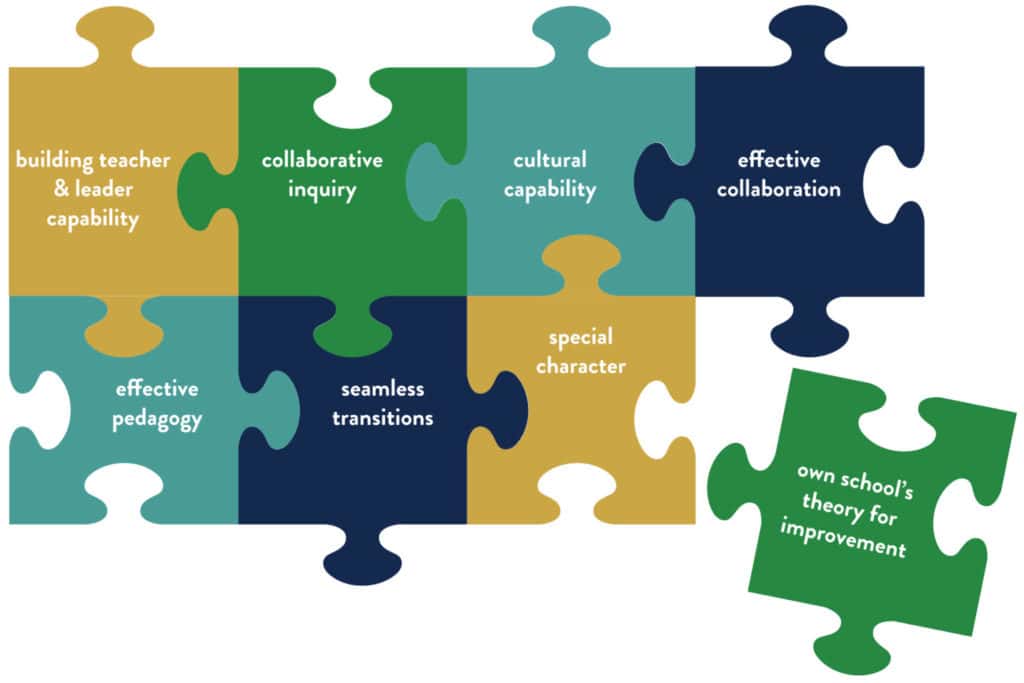
The Kāhui Ako are committed to strengthening teaching, leading and learning to ensure quality teaching and leadership (NELP 3). This involves ongoing professional growth and development to ensure improved learner outcomes for all.
Collaborative inquiry involves people working together to systematically examine focused aspects of their educational practices, using data and relevant research, leading to new understandings and changes in teaching, leading and learning.
Cultural capability refers to the development of skills, knowledge, behaviours and systems that are required to plan, support, improve and deliver teaching, leading and learning, in a culturally sustaining and appropriate manner. It is important to ensure mana ōrite mō te Mātauranga Māori, to uphold our unique biculturalism in Aotearoa New Zealand. Catering for our increasing number of ELLs remains a priority for our Kāhui Ako.
Effective collaboration requires teams to work together on clear, shared and agreed upon goals. Strong relational trust enables open discussion and this is followed through with actions & responsibilities towards improved learner outcomes
Our Kāhui Ako aims to identify and implement effective teaching to ensure improved learning outcomes and to support the successes of all learners.
The Kāhui Ako is committed to ensuring that there is a coherent pathway for all learners, from ECE to beyond secondary school. Learners will seamlessly transition in positive ways that support their hauora/wellbeing.
Each kura provides a learning environment where all aspects of teaching, leading and learning are Christ-centred and shaped through a Biblical worldview.
To ensure each kura maintains its unique identity, they need to respond to the specific needs of their kura, alongside the progress aspirations of the Kāhui Ako.